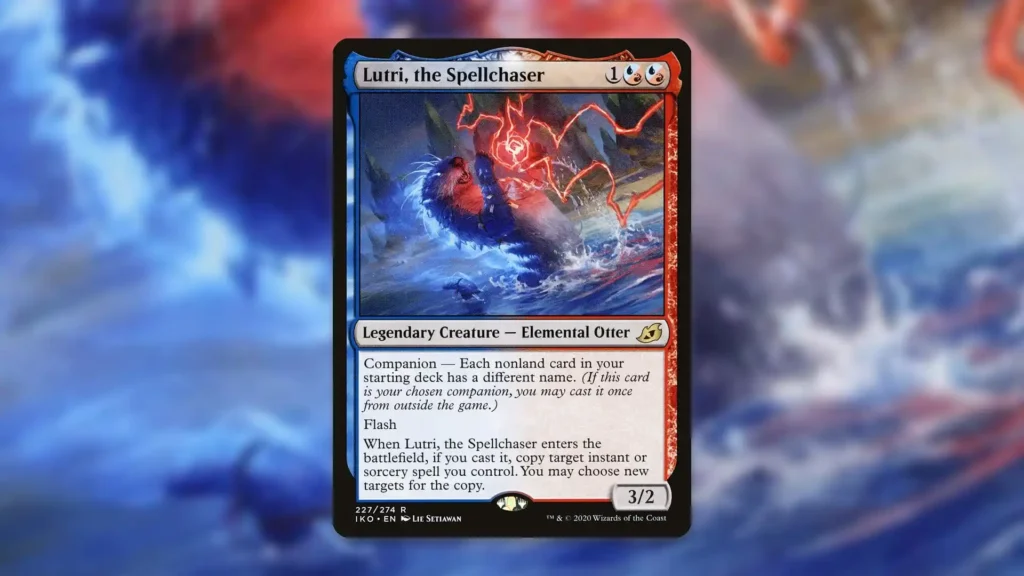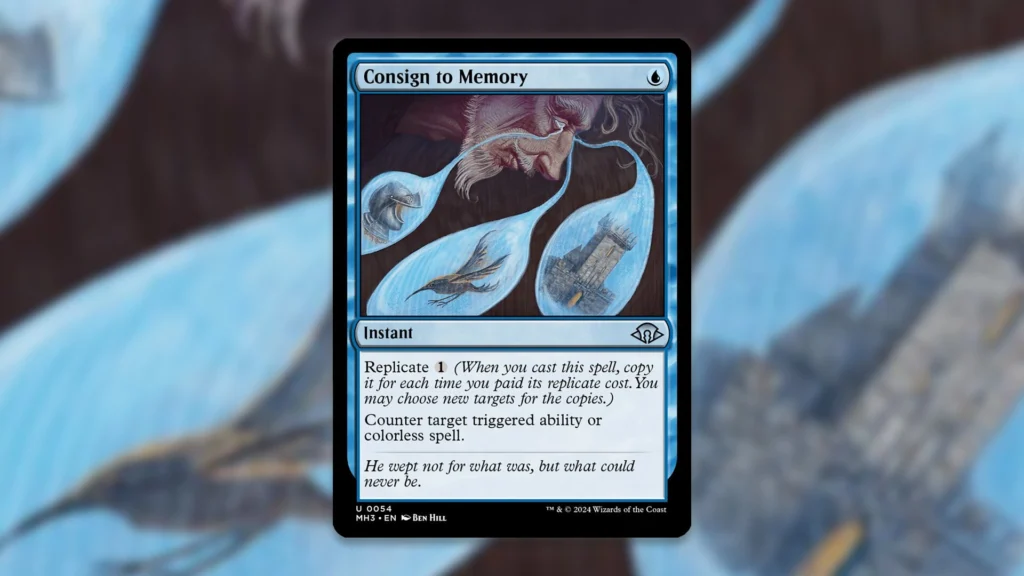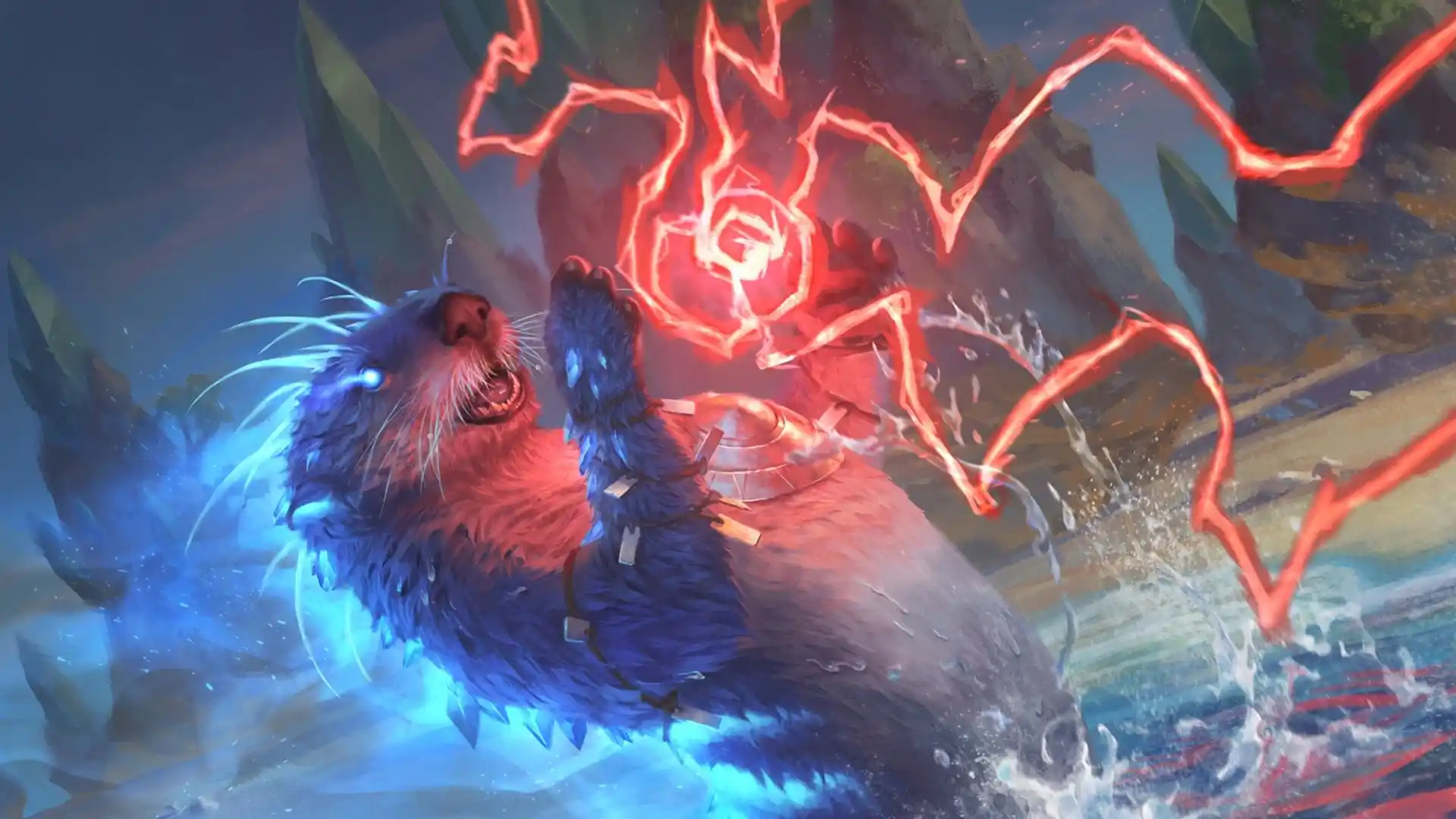Back in Ikoria: Lair of Behemoths, Wizards debuted one of the most broken mechanics of all time in the form of Companions. Even after the rules change was implemented to power down the mechanic across MTG, some Companions were still too strong. Lutri, the Spellchaser, for example, has been banned in Commander for years given how easy it is to free-roll it in a Singleton format. The same is not true in constructed, where building around Lutri is difficult.
Despite losing a lot of its luster in Constructed due to its heavy deckbuilding restriction, the legendary Otter managed to 5-0 a Modern League this week by surprise. The constant influx of powerful new cards to Modern has given Lutri shells more options, and the reward for playing a Companion is undeniably quite high.
Maximizing Lutri

In order to get the most out of Lutri as your Companion in Modern, you need to meet some specific criteria. Most importantly, you need to maximize its enters ability by playing a high density of efficient spells to copy. From there, you also need plenty of interaction to help buy you enough time to put Lutri into your hand without falling too far behind.
Fortunately, this deck delivers on both accounts by featuring a slew of one-mana removal spells. Obviously, running cards like Bloodchief’s Thirst instead of extra copies of Fatal Push isn’t ideal, but the value of having consistent access to an extra win condition every game helps make up for this. Besides, early in the game, they still accomplish the same task of killing an early Guide of Souls and keeping your head above water. Later on, copying any of these spells to take care of multiple threats at once can help you stabilize the board after you took time off to put Lutri in hand.
Of course, besides creature removal, this deck also comes prepared with discard spells and counterspells to keep combo and control decks in check. From Spell Pierce to Thoughtseize, there are ample ways to keep Ruby Storm or Azorius Control off-balance. Card selection spells such as Preordain make it easier to sift through your deck and find the specific pieces of interaction you need depending on the matchup. If given enough time, your cantrips and card draw spells are elite options to copy with Lutri in order to gain an advantage in resource battles.
One of the luxuries of playing so many one-ofs is that it makes your interaction suite somewhat unpredictable. There’s no better feeling than blowing your opponent out with an unexpected niche spell like Spell Snare or Shadow of Doubt. These brutal swings become even more threatening for the opponent if they’re under pressure, and this deck comes prepared with a bunch of strong tempo plays that further maximize your wealth of cheap interaction.
Tempo Elements

As good as Lutri is as a value engine, you won’t always need to rely on your Companion to help close games. This deck uses a handful of Grixis powerhouses that will end the game if left unchecked. Psychic Frog, for instance, can outsize most opposing creatures and damage-based removal.
As you continue to exchange resources with your opponent in the early game, threats like Abhorrent Oculus and Murktide Regent quickly become castable, too. Even Nethergoyf can be a nuisance given how quickly this deck fills its graveyard. This archetype’s best avenue to victory is to land one of these game-breakers and back it up with counter magic. In the event the opponent manages to deal with everything you throw at them, that’s when Lutri comes in for cleanup duty.
This archetype’s success really goes to show just how many powerful tools are available in Modern. Even without being able to utilize playsets of your best cards, there are a number of ways to close games and mess with the opponent’s gameplan. Unfortunately, though, there are some matchups where this strategy is problematic despite how strong Lutri is as a Companion.
Matchup Concerns

As a whole, this Grixis Control shell is at its best in matchups where its interactive elements shine. Versus Boros Energy, this deck is well-suited to trade resources and eventually use big threats and Lutri to pull ahead. Against slower decks, having access to a Companion is a huge benefit. The problem comes against decks where your generic midrange gameplan isn’t good enough and you need to rely on specific sideboard cards to have a chance.
Eldrazi Ramp and Tron, for example, are nightmare matchups since you don’t have a full playset of Consign to Memory or Break the Ice to bail you out. Traditional counterspells just don’t cut it against Ugin, Eye of the Storms and all of the other top-end monsters with cast triggers. Similarly, not having access to more copies of Force of Negation makes it much harder to beat Neoform Combo on the draw.
Overall, Lutri is still more of a fun inclusion than a super competitive option. Regardless, if you want the opportunity to put your favorite Otter to action, this is one of the best homes for it. Just don’t be surprised if you run into some difficult matchups to navigate your way out of.
Stick with us here at mtgrocks.com: the best site for Magic: The Gathering coverage!

